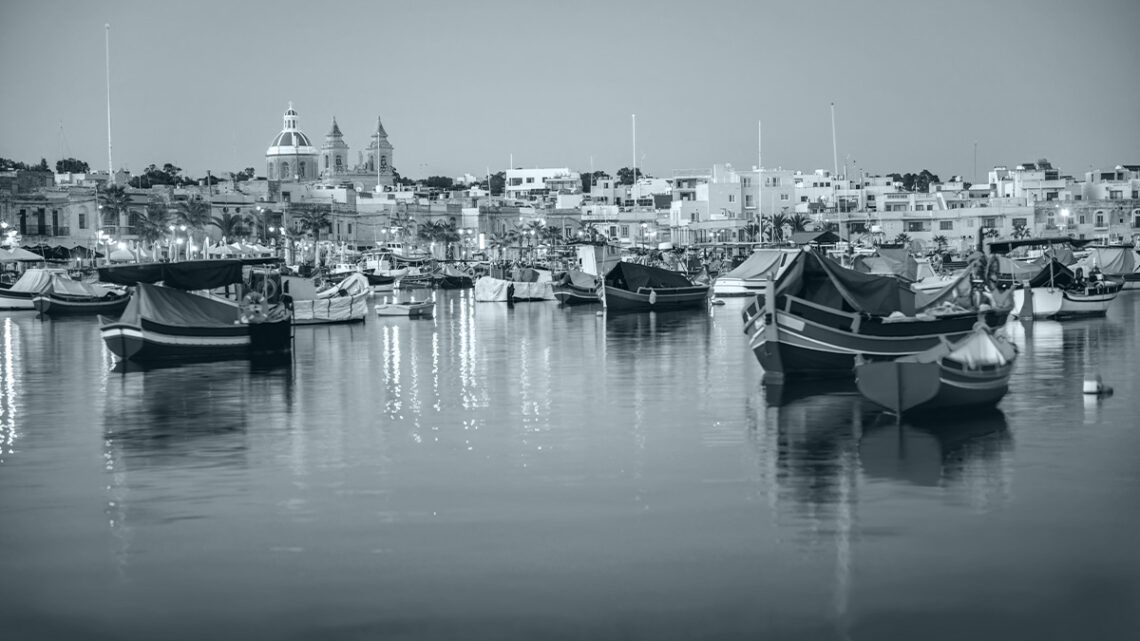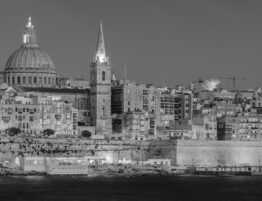
The sunny Mediterranean island of Malta, with its stunning landscapes and vibrant culture, has become an attractive destination for UK citizens looking to start a new chapter in life. Whether for work, retirement, tax considerations or a better climate, moving to Malta from the UK offers a wealth of opportunities.
Immigrating to Malta from the UK: A Complete Guide
Since Brexit, UK citizens are no longer EU nationals, which means different rules now apply to them when moving to Malta. This article covers the key aspects UK citizens should know about Malta’s visa, residency, and citizenship options.
Why Moving to Malta from the UK?
- Quality of Life: Malta boasts a high standard of living, excellent healthcare and a reputable education system. The island is known for its friendly locals and vibrant expat community, making it easy to adapt.
- Strategic Location: Positioned in the heart of the Mediterranean, Malta serves as a gateway to Europe, North Africa, and the Middle East, enhancing travel and business opportunities.
- Language: English is one of the official languages in Malta, making communication straightforward for UK citizens relocating to Malta.
- Mild Mediterranean Climate: Malta’s warm Mediterranean climate, with long summers and mild winters, is a major draw for those looking to escape the colder UK weather. The island offers a relaxed outdoor lifestyle with numerous beaches, historical sites, and cultural events to enjoy throughout the year.
- Stable Economy and Safe Environment: Malta enjoys a stable economy with a growing financial services and technology sector, making it a good destination for professionals seeking new opportunities. Additionally, Malta is known for its low crime rates, providing a safe and secure environment for families.
- Favourable Tax Regime: Malta’s tax system is highly appealing, particularly for individuals with foreign-sourced income. Non-domiciled residents can benefit from a 15% flat tax rate on foreign income remitted to Malta under the Global Residence Programme, with no tax on income not remitted to the island. This is a significant advantage for retirees, investors, and expatriates with overseas earnings.
Malta Visa Requirements for UK residents and BRP Holders
UK citizens can enter Malta without a visa for short stays of up to 90 days within a 180-day period under the Schengen Zone rules. However, for long-term relocation, applying for a residence permit may be required based on the individual’s circumstances.
Before travelling to Malta one requires:
- Valid Passport: A passport which is valid for at least three months beyond the planned departure date from Malta.
- Travel Insurance: A comprehensive travel insurance policy is highly recommended to cover potential medical emergencies or trip cancellations.
- Return Ticket: Show proof of onward or return travel, as well as accommodation details.
British passport holders
Post-Brexit, UK passport holders no longer have the automatic right to live and work in Malta. If you plan to stay beyond the 90-day visa-free period, you’ll need to apply for the appropriate residency permit.
BRP holders (Biometric Residence Permit)
If you’re a UK resident with a BRP (such as non-UK nationals or third-country nationals living in the UK), you would generally need a visa to enter Malta. The visa requirements depend on your nationality.
Malta Residency Options for UK Citizens
UK citizens have several routes to acquire residency in Malta, depending on their objectives and whether they wish to work, retire, apply for a special tax status, obtain permanent residency or simply enjoy an extended stay on the island. The primary residency options include:
Malta Permanent Residence Programme (MPRP) for UK citizens
UK citizens can apply for permanent residency under the Malta Permanent Residency Programme (MPRP) if they can demonstrate they are in possession of at least €500,000/650,000 in capital, satisfy specific background checks and meet the health insurance requirements. Once approved, applicants are required to buy or rent property in Malta, give a small donation to charity and pay a government fee.
MPRP Requirements for UK citizens – updated with latest 2025 amendments
Buy a property in Malta or Gozo and spend at least €375,000
OR
Rent a property in Malta or Gozo and spend at least €14,000 per annum
AND
Pay a non-refundable contribution of €37,000 together with a government admin fee of €60,000.
An additional government admin fee payment of €7,500 for each adult dependant child, parent and grand parents is also due.
AND
Donate at least €2,000 per family to a charity in Malta.
Global Residence Programme (GRP)
The Global Residence Programme is a special tax programme whereby applicants are subject to tax in Malta at a flat rate of 15% on any foreign income remitted to Malta and a flat rate of 35% on any locally generated income. UK nationals applying for the GRP are required to annually declare that they didn’t spend more than 183 days in a calendar year, in any other one jurisdiction.
GRP Requirements for UK citizens
Buy a property in the South of Malta or Gozo and spend at least €220,000 or spend €275,000 in the North/Central Malta.
OR
Rent a property in the South of Malta or Gozo and spend at least €8,750 per annum or €9,600 if the property is chosen in the North/Central Malta.
AND
Pay a non-refundable administrative fee of €6,000
AND
Pay an annual minimum tax of €15,000
Malta Work Permit for UK citizens
If you have a job offer in Malta, you will need to apply for a work permit. Your employer typically assists with this process, which involves applying for a Single Permit that combines both work and residence permits.
Malta Citizenship for UK Citizens
UK citizens looking for a more permanent status may consider obtaining Maltese citizenship. There are three main routes available: citizenship through naturalisation, citizenship by descent and citizenship by investment.
Malta Citizenship by Merit
For UK nationals seeking deeper integration into Maltese society, Malta offers a unique route to citizenship by merit. This pathway is designed for individuals who have made, or are positioned to make, exceptional investments / contributions to the country across a range of fields.
Citizenship by merit is granted on a discretionary basis to those who have demonstrated outstanding achievements or services in areas such as business, science, technology, culture, sport, or economic development. Unlike investment-based citizenship programmes, this route places emphasis on personal impact, long-term engagement, and meaningful contributions to Malta’s national interest.
Each application is assessed individually, and successful candidates are awarded citizenship as a mark of recognition and appreciation for their merit. For UK nationals with a strong connection to Malta and a proven track record of excellence, this pathway offers a dignified and rewarding means of becoming part of the Maltese national community.
Malta Citizenship by Naturalisation
After residing in Malta for five years, UK citizens may apply for Maltese citizenship by naturalisation. This process involves demonstrating strong ties to Malta, including integration into Maltese society. Applicants will need to meet language and residency requirements. Such applications are subject to the discretion of the Minister responsible for citizenship.
Maltese Citizenship by Descent
UK citizens who have Maltese ancestry may be eligible for Maltese citizenship by descent. This route is open to individuals who can prove that they have Maltese parents, grandparents, or even great-grandparents,
Benefits of Maltese Citizenship
Many are the advantages of Maltese Citizenship.
- Travel Freedom: Maltese citizens enjoy visa-free travel across the EU and Schengen Area and also benefit from visa-free travel or visa on arrival in more than 190 countries, enhancing global mobility.
- Quality of Life: Malta offers a high standard of living, excellent healthcare, and a warm climate, making it an attractive destination for families and retirees.
- Cultural Richness: The island’s rich history and thriving community provide a unique lifestyle experience, with numerous festivals, culinary delights, and outdoor activities.
Malta offers a range of appealing options for UK citizens looking to relocate, from residency to full citizenship through naturalisation, descent or investment routes. Given the post-Brexit changes, it’s important to review the latest legal requirements and speak to a licensed Maltese Immigration lawyer to ensure the correct steps are taken.






